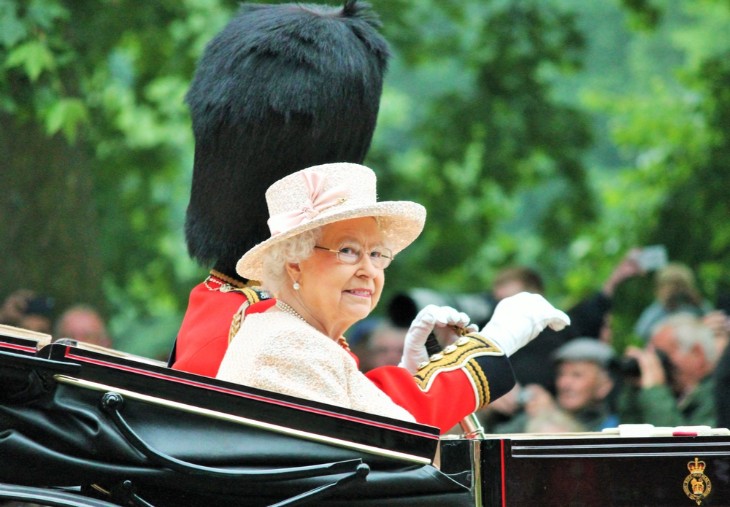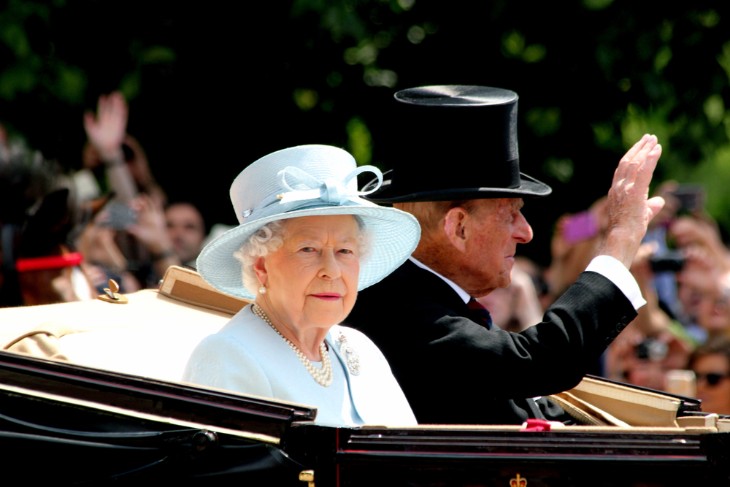In the heart of British culture lies a sport that resonates deeply with tradition, pageantry, and a strong sense of national identity: horse racing. As one of the oldest and most cherished pastimes in the United Kingdom, it has been embraced by people from all walks of life, including the royal family. None have been as influential in the equestrian world as Queen Elizabeth II, whose love for horse racing is well-known and celebrated throughout the nation.
The Crown and the Course: Queen Elizabeth II's Love for Horse Racing
Since ascending to the throne in 1952, Queen Elizabeth II has been an avid supporter of horse racing, and her involvement in the sport has only grown stronger over the years. As the head of the monarchy, she has been a prominent figure at numerous prestigious race meetings, including the Royal Ascot, Epsom Derby, and the Glorious Goodwood.
Her passion for the sport goes beyond mere attendance. Queen Elizabeth II is known to have a keen interest in the breeding, training, and development of racehorses, and she is actively engaged in the equestrian world. Her deep understanding of the sport has earned her respect and admiration from racing enthusiasts, jockeys, trainers, and breeders alike.

The Royal Racers: A Look at Her Majesty's Owned Horses
Her Majesty's passion for horse racing is evident not only in her presence at major racing events but also in her ownership of racehorses. Over the years, the Queen has owned a remarkable number of thoroughbreds that have graced the tracks with distinction.
One of her most famous racehorses was "Estimate," a mare who achieved the extraordinary feat of winning the prestigious Gold Cup at the Royal Ascot in 2013. The victory was not only a testament to the Queen's deep connection to the sport but also marked the first time a reigning monarch's horse had triumphed in this historic race.
"Carlton House" is another notable name in the list of the Queen's owned horses. This colt achieved success on multiple occasions, and his victories brought immense joy to Her Majesty and racing enthusiasts across the nation.
Beyond the victories, the Queen's love for her horses is evident in the care and attention they receive. She is actively involved in their training and well-being, ensuring that they have the best possible chance of success on the track. The dedication and passion she puts into her racehorses have cemented her status as a true equestrian enthusiast and an exemplary owner.

From Ascot to Epsom: The Queen's Favourite Racecourses
When it comes to choosing racecourses to attend, Queen Elizabeth II has a few favorites that hold a special place in her heart. At the top of the list is the iconic Royal Ascot, an event steeped in history and grandeur. Each year, the Queen arrives in style, resplendent in her elegant attire and signature hats, to kick off the five-day festival. It is a spectacle watched by millions around the world, and the sight of Her Majesty's procession to the Royal Enclosure is one that evokes a sense of pride and admiration.
Another cherished racecourse for the Queen is the Epsom Downs, home to the world-famous Epsom Derby. As one of the most prestigious flat races in the world, the Derby has seen generations of the royal family in attendance, and Queen Elizabeth II has been a constant presence, cheering on the runners with enthusiasm and delight.
Beyond these two iconic venues, the Queen's love for horse racing takes her to various other racecourses across the country. Whether it's the historic Goodwood or the picturesque Newmarket, Her Majesty's presence adds a touch of regal splendor to every event, and her genuine interest in the races and the horses is always evident.
A Royal Tradition: The Monarchy's Historic Influence on British Horse Racing
The relationship between the British monarchy and horse racing dates back centuries, intertwining history, prestige, and national identity. Kings and queens of the past were enthusiastic patrons of the sport, and their support played a pivotal role in elevating horse racing to the revered status it enjoys today.
One of the most significant contributions of the royal family to horse racing was the establishment of the Royal Ascot in the early 18th century. It was Queen Anne who first recognized the potential of Ascot Heath as a racecourse, and the inaugural meeting took place in 1711. Since then, the Royal Ascot has evolved into a hallmark of British society, attracting the crème de la crème of society and international guests, all eager to witness the royal spectacle.
The influence of the monarchy extends beyond prestigious events. The Royal Studs, established under King James I, have played a pivotal role in breeding and improving the quality of racehorses in the United Kingdom. These studs have been passed down through generations, and Queen Elizabeth II continues to uphold the tradition of breeding thoroughbreds of excellence.
Moreover, the royal family's interest in horse racing has inspired many charitable initiatives. The Queen, along with other members of the royal family, actively supports various racing-related charities and causes. Their involvement in charitable work has helped improve the lives of many in the equestrian community and beyond.
The Queen's Legacy: How Her Passion Shaped the Modern Sport
Queen Elizabeth II's enduring love for horse racing has left a profound mark on the sport, influencing both the racing industry and the public's perception of the equestrian world. Her unwavering dedication to the sport has not only boosted its popularity but has also inspired a new generation of racing enthusiasts.
By actively participating in the racing community, Her Majesty has fostered a sense of unity and camaraderie among horse racing enthusiasts. Her regular attendance at racecourses, her interactions with jockeys, trainers, and breeders, and her warm engagement with spectators have all contributed to creating a more inclusive and welcoming atmosphere within the sport.
Beyond the glamour of the royal presence at prestigious racing events, the Queen's hands-on approach to horse ownership has set an example for other owners and breeders. Her meticulous care for her horses and involvement in their training and well-being demonstrate the importance of responsible horse ownership and the welfare of the animals.
Furthermore, Queen Elizabeth II's passion for breeding has had a lasting impact on the quality of racehorses in the UK. Her dedication to maintaining and improving the Royal Studs, as well as her support for other breeding programs, has contributed to the continuous enhancement of the equine gene pool and the production of top-class racehorses.
Her Majesty's influence extends beyond the shores of the United Kingdom. Her international reputation and status as a respected figure in the horse racing world have forged connections with racing communities worldwide. Many overseas racing enthusiasts look up to the Queen's equestrian involvement, seeing her as an ambassador for the sport and a symbol of excellence in horsemanship.
Racing Royalty: Other Members of the Royal Family in the Equestrian World
Queen Elizabeth II's passion for horse racing is shared by several other members of the royal family, making equestrian pursuits a cherished tradition within the Windsor clan. The late Duke of Edinburgh, Prince Philip, Duke of Edinburgh, was also an avid equestrian and a keen supporter of horse racing. His presence alongside the Queen at various race meetings exemplified the family's dedication to the sport.
Additionally, other members of the younger generation, including the Prince of Wales, the Duke of Cambridge, and the Duchess of Cornwall, have also demonstrated a keen interest in horse racing. Their presence at events such as the Royal Ascot and the Cheltenham Festival has showcased the enduring appeal of the sport within the royal family.
Moreover, the younger members of the royal family are actively involved in various equestrian disciplines, such as show jumping and polo. Their participation in these sports not only promotes the love for horses but also encourages young enthusiasts to pursue equestrian pursuits and ensures the continuation of the royal family's equestrian legacy.
The Royal Studs: Breeding Excellence and the Queen's Contribution
At the heart of the Queen's involvement in horse racing lies her dedication to breeding and the renowned Royal Studs. Located at Sandringham, Balmoral, and Hampton Court, these studs have been meticulously maintained and developed over the years, showcasing the Queen's commitment to the preservation of exceptional bloodlines and the improvement of the equine breed.
The Royal Studs have produced several exceptional racehorses that have graced the tracks with their speed and prowess. Queen Elizabeth II's dedication to breeding has not only borne fruit in terms of racing success but has also contributed to the broader equine community. The expertise developed at the Royal Studs has been shared with other breeders, fostering excellence in horse breeding across the country.
Beyond breeding for racing, the Queen's commitment to preserving rare and native breeds is noteworthy. The conservation efforts undertaken by the Royal Studs play a crucial role in safeguarding the genetic diversity of British horses, ensuring that these breeds remain a part of the nation's heritage for generations to come.
The Queen's passion for horse racing and breeding extends beyond the UK. Her horses have competed in international races, gaining recognition and respect on the global stage. The success of her horses not only brings glory to the British racing industry but also strengthens the ties between the UK and other racing communities worldwide.
Beyond the Racetrack: Charitable Endeavors and Equestrian Causes
Queen Elizabeth II's love for horses extends beyond the thrill of racing. Her passion for these magnificent animals has led her to support various charitable endeavors and equestrian causes, aiming to improve the welfare of horses and promote equestrian sports.
One of the significant charitable initiatives the Queen supports is The British Horse Society (BHS), an organization dedicated to promoting the well-being of horses and their riders. Her Majesty's patronage has helped the BHS make strides in promoting responsible horse ownership, providing essential education, and advocating for the welfare of horses across the UK.
Furthermore, the Queen's passion for horses has inspired her to support therapeutic riding programs that use horse riding as a form of therapy for people with disabilities. These programs have proven to be highly beneficial, both physically and emotionally, for individuals facing various challenges, and the Queen's endorsement has brought increased attention to their invaluable work.
The royal family's influence has also extended to the racing community's charitable efforts. Many racing-related charities receive generous support from the Queen and other members of the family. Their involvement has helped raise awareness and funds for crucial causes, such as supporting retired racehorses, assisting stable staff in times of need, and contributing to equine research.

The Queen's dedication to horse racing has touched the hearts of many and ensured that the royal family's equestrian connection remains an integral part of British culture for generations to come.







